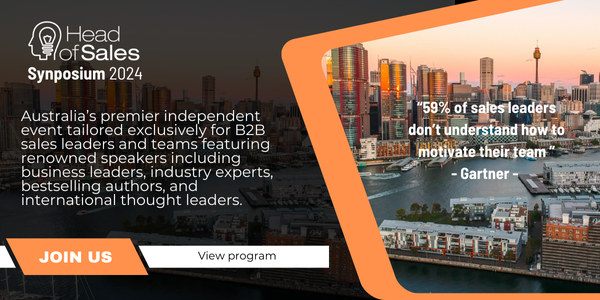Invoke Fear, Radiate Authority, Honesty and Consistency
Sales Trigger 7: Invoke Fear
Fear is an incredibly powerful motivator. You’ll see everyone from marketers to politicians to bosses to parents using fear to get people to take some specific action. They do it because it works.
Now, I’m not saying you have to act like Freddy Krueger from the horror movies and scare the bediddles out of your prospects. Not at all. Instead, all you have to do is lightly touch the fear trigger to make a significant impact.
Here’s how to do it:
Create a Fear of Missing Out
This phrase (fear of missing out) has become so popular recently that it has its own acronym: FOMO. Typically this applies to people who can’t stop looking at their smartphones because they have a fear of missing out on some Facebook post, pop culture trend, or even an invitation to go out.
You can take this natural fear and funnel it into your sales system by creating a somehow limited offer. For example:
- Limit the proposal to a set number of people. For example, perhaps you set up a PLR membership site with a strict membership limit of just 250 people. Or you can offer a bonus or discount to the next 100 people who order now.
- Offer a discount or bonus for a limited amount of time. For example, you can offer a 50% discount that ends in 72 hours.
As you can see, there are many different ways to create scarcity, boost urgency and in general, develop a sense of fear. These include: - Coupons.
- Discount sales.
- Flash sales.
- Dime sales (the price goes up every day or after every purchase).
- Early bird offers.
- Introductory special rates.
- Holiday sales.
- Grand opening sales.
I could go on with this list. In all cases, the offer is somehow limited. This creates a fear of missing out on a great deal, which in turn boosts your conversion rate.

Here’s the second way to create fear:
Remind People of Their Fears
One of the best examples of this comes from the marketing you see from insurance companies. They get prospects to imagine what it would be like if they lost everything in a fire, and they didn’t have insurance.
You don’t need to sell insurance to remind people of their fears. No matter what you’re selling, you can remind people of what might happen if they don’t order now. For example:
- If you choose to do nothing and leave this sales page, you won’t lose weight. The ridicule might continue. People might give you disapproving looks when you’re out on the street. You’ll hate what you see when you look in the mirror.
- This problem is not going to get better if you ignore it. Those few fleas you see on your dog now might multiply. Soon your entire house might be infested. Insects might infiltrate the carpet, the furniture, and even your bed.
Do you see how this works? Create a limited offer or remind people of their fears, and you’ll see a boost to your conversion rate.
Now the next conversion-boosting triggers:
Sales Trigger 8: Radiate Authority
You’ve probably heard of the old Stanley Milgram psychology studies, where average people were told by an authority figure – which was a researcher in a white coat — to deliver electric shocks to someone else whom they couldn’t see.
Of course, there weren’t real shocks getting delivered, but the subjects of this experiment didn’t know that. They got told the shocks were real, and they could even hear someone screaming and pleading in the next room over not to shock them. Yet these research subjects kept delivering shocks, all because an authority figure told them to do so.
I’m not suggesting you run around trying to get people to deliver electric shocks to others. Rather, you can use any authority you might own to help build your credibility, get people to listen to you, and get people to do what you want.
Here’s how:
State Your Credentials
If you have some position of authority in your niche, then be sure others know about your credentials. This might be a degree or career paths, such as a doctor, lawyer or law enforcement. If you have a photo to back this up – such as you in judge’s robes or a uniform – include this with your content.

Borrow Other People’s Authority
If you don’t have a position of authority, you can still use influence to your advantage by borrowing other people’s position of authority. How? By doing joint ventures or even just getting testimonials from authority figures.
For example, maybe you have a diet guide. You can have medical doctors and nutritionists review it and offer their testimonials.
TIP: This is like the advertisements where they state something like, “four out of five dentists agree.” That’s using borrowed authority to boost sales.
Radiate Authority
You don’t have to have any specific credentials to position yourself as an authority in your niche. If you’re an expert, then act like one. Be a strong leader. For example:
- Speak (write) with confidence. The more confident you sound in your articles, sales letters, blog posts, and other content, the more likely it is people might follow you without question.
- Position yourself as an authority. This means blanketing your niche with content. Write guest blog posts. Write and publish a book. Give talks. The more people see your excellent content, the more they’ll associate you with authority in a niche.
So the bottom line is thus to set up yourself as an authority, show your credentials when applicable, and borrow other people’s authority when possible.
Together, these tactics could boost your conversion rate.
Next up:
Sales Trigger 9: Be Honest
I know it seems like common sense that you should be honest. But the truth is, a lot of people seem to think that marketers and salespeople aren’t trustworthy. Just ask anyone what their impressions are of used-car dealers. That’s an entire profession where everyone tends to get lumped into the “dishonest” pile. Those writing ads of any kind aren’t far behind.
Of course, salespeople don’t help their own image. While the majority don’t tell outright lies, many of them skirt around the truth with “errors of omission.” In other words, these marketers and salespeople don’t let prospects know what’s wrong with the product.
Now here’s a trick to boost your conversion rate: be honest with your prospects, tell them all about the flaws, and then turn these perceived flaws into assets.
Just that you’re being honest about a product or service is going to make people trust you more, which in turn boosts sales.
However, the other part of this is that you’re handing an objection by turning a perceived flaw into an asset. As you learned earlier in this report, handing objections is another good way to boost your conversion rate.
Let me give you a real-life example of turning a liability or flaw into an asset.
Listerine is a mouthwash that’s known for having a strong taste. Scope (a mouthwash competitor) directly attacked Listerine by saying that using Scope produces fresh breath without “medicine mouth.”
So now Listerine is having a perception problem in that prospects think their product is going to taste yucky, like medicine. Listerine responds with ads that say this: “Listerine: You can handle it. Germs can’t.”
Boom. Listerine is saying in these ads that the strong taste is what kills the germs. And by inference, they’re saying that any mouthwash that doesn’t have a strong taste probably isn’t killing bacteria.
See how that works? Listerine didn’t hide the fact that they have a strong-tasting mouthwash. Instead, they turned that perceived weakness into a strength of the product by suggesting their product tastes strong because it kills germs.
Now you can boost your conversion rates and sales using this same strategy. Simply be honest no matter what you’re selling (your product or an affiliate product), and turn perceived flaws into assets when possible.
For example, maybe you’re selling an ebook that seems a bit thin compared to other ebooks on the topic. Some people might feel like they’re not getting their money’s worth if the book is too short. You can turn this perceived flaw into an asset by saying this book is for busy people – there’s no fluff, no filler, just meat.

So go ahead and think about what’s wrong with your products and the affiliate products you’re selling. Don’t hide these flaws in your sales copy and product reviews. Instead, put ‘em front and centre, and turn the perceived deficiencies into strengths.
Next up:
Sales Trigger 10: Evoke Consistency
People don’t want to view themselves as wishy-washy flip-floppers who change their mind when the wind blows. People like to see themselves as consistent and committed. You can use this psychological fact to boost your sales.
How? By using the foot in the door technique.
It works like this:
You get your “foot in the door” by getting your prospect to perform some small action or do you some small favour. Then later, you ask them for a bigger favour. Since they want to appear consistent, they’re likely to do your bigger favour.
Researchers have examined this psychological trigger, and they’ve found it truly works. Researchers started by asking people in a neighbourhood to put a big, ugly sign in their front yard. Naturally, the majority of people said no.
Then these researchers did a test with another group of folks. They asked this second group to put a small placard in their window that promoted picking up trash or some other neutral activity. Many people said yes because it was an easy way to support beautifying the neighbourhood.
A couple of weeks later, researchers returned to those who displayed the placard and asked if they’d also display a yard sign. You got it – that yard sign was the big, ugly one. And you know what? A bunch of these people said yes because they wanted to stay consistent.

So here’s the point: if you ask for a big favour right away, people will outright say no. But ask them for a small, easy favour first to get your foot in the door, and these folks are more likely to say yes when you ask for a bigger favour later.
For example:
- Ask people to join your mailing list first (easy favour), and then later ask them to buy your entry-level product.
- Ask people to buy your entry-level product, then ask them to buy your home study course.
- Offer an upsell to those who’re in the process of buying your course.
- Ask people who’ve “liked” your social media content to share it with their friends.
- Propose a small, easy joint venture with a partner first, and then later propose a more significant joint venture project.
- Ask your prospects to enter your free contest, and then later ask them to register for a webinar.
You get the idea. Get your foot in the door with small requests and see if you too don’t get a bigger response rate when you make larger requests.
Now let’s wrap things up:
Conclusion
What you’ve learned in this report is like pulling back the curtain to see how the world’s best marketers, salespeople, and politicians seem almost magically to lead people to do what they want. And now you too can boost your sales and response rates by employing the following ten psychological sales triggers:
- Reciprocity
- Curiosity
- Specificity
- Objection-Handling
- Credibility
- Conformity
- Fear
- Authority
- Honesty
- Consistency
Now the key here is to not cherry-pick through these methods and merely use a few of them. Instead, put as many of these methods to work for you every time you write a sales letter, publish a newsletter, post something on your blog, or write any other type of persuasive content.
These are potent triggers that researchers have proved time and again work like crazy to boost your response rates. But don’t take my word for it – try them for yourself to see what kind of results you’ll get. I think you’ll be amazed!
Just in case you miss the first two chapters:
Chapter 1 covers Reciprocity, Curiosity And Specificity.
Chapter 2 covers Handle Objections, Credibility and Social Proof.
Publisher’s note – this article was originally published at Richtopia as A Comprehensive Guide on the Psychology of Marketing and Sales.

































